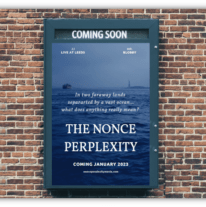Film Appreciation With Cappie The Dog

“Often the works in which we are most aware of the personality of the director are his worst films, when he falls back on devices that he already has done to death.
When a director makes a good movie, we look at the movie…when he makes an atrocity…there’s plenty of time to look for his personality, if that’s your idea of a good time.”
– Pauline Kael, 1963
Film critic Pauline Kael’s polemic Circles and Squares, published in the spring 1963 issue of Film Quarterly, caused quite the stir among cineastes of its time. Predominantly male, they were flabbergasted that a woman would attack one of their sacred cows:

Andrew Sarris, author of Notes on the Auteur Theory in 1962.
In her indomitable acerbic style, Kael challenged Sarris’ notion that a director’s failures as being more interesting than his successes.
The longtime film critic for The Village Voice believed that a movie review, divorced from theory and the objective voice, was an exercise in film appreciation.
In a nutshell, Sarris and others of his ilk were less interested in film as entertainment than an object you dissect like a medical examiner performing an autopsy.

The critical and commercial failure, HURRY UP TOMORROW, directed by Trey Edward Shults, defies audience expectations by being neither a musical biopic nor even being plot-driven, as most mainstream fare typically are.
Kael would’ve screened this self-conscious art film without regard of the filmmaker’s well-received oeuvre. But Sarris, an academic at heart, through his application of auteur theory can redeem a flawed or uniquely unsuccessful film by highlighting the director’s virility, his “elan of the soul”.
The Texas-born Shults is readily identifiable as an auteur through his referencing of the late David Lynch in subtle and surprising ways over an undervalued ten-year career.
Pauline Kael championed the actor.
She wanted to be overwhelmed, a moviegoing experience you would characterize as visceral.
Abel Tesfaye, playing himself, Abel, doesn’t so much act but exists, a figure in the director’s mis-en-scene. Sarris, who prioritized a film’s meaning over entertainment value, would’ve overlooked his anti-performance or the yeoman’s work put in by Jenny Ortega (Anima) as a counterbalance to the emoting void left by her costar.
HURRY UP TOMORROW opens (and ends) backstage, minutes before Tesfaye transforms into The Weeknd:
Making propeller noises into a vanity mirror, discerned as an actual preconcert ritual, signified by genre:

In the concert film. A documentary subset.
This international superstar performs “Wake Me Up” in its entirety on a stage with all the glamorous rudiments of a major concert tour.

The aspect ratio is 4:3. It looks like a box, a square, even.
From the outset, the film’s slack pacing may have people eyeballing the exits.
Academic types, however, will take note that Shults utilizes this framing device (the momentary aspect ratio) in his debut feature-length film, while Paulettes stifle yawns, insisting through their ennui that tropes and patterns are subordinate to form and content, not the other way around.
Sarris acolytes will be quick to point out that HURRY UP TOMORROW is less about The Weeknd than the cult of the director.
Trey Edward Shults utilizes a real-life incident:

The loss of the musician’s voice midway through a 2022 concert in Los Angeles.
It’s a springboard to self-consciously deconstruct his Lynchian sensibility running through his body of work.
Films that map out an arc of aesthetics, meted out incrementally, with dream logic serving as the apotheosis after three filmic prefaces in which reality and fantasy are clearly demarcated.
Before Anima drives the lost highway from rural Montana to the City of Angels, KRISHA:

The titular character in Trey Edward Shults’ 2015 anti-holiday film about the failed Thanksgiving Day atonement of a runaway mother:
A recovering alcoholic who parks on the found street of her sister’s house in suburban Texas.
Shults integrates the same visual language David Lynch employed in his own debut offering, ERASERHEAD, like a secret because the referential signs are dislocated from genre, a horror film, which KRISHA largely dissimulates from with its slice of life presentation.
As a proxy for Lynch’s mutant baby, a victim of infanticide committed by the father, Henry Spencer (Jack Nance):

The turkey Krisha volunteers to prepare is enlisted.
Among the innards she removes from the bird, its giblets, is the heart, a scene of performative gore, as in Krisha tore his son’s heart out. Trey (Trey Edward Shults) is that turkey, all grown up, lacking the heart necessary to forgive his mother for leaving.
In ERASERHEAD, the survival of Henry’s snake-like baby with the human cry (its colicky ways drives Mary X. (Charlotte Stewart), the birth mother, to desert the family) is contingent on the gauze swaddled around its lower extremities.

More violence, albeit of the emotional kind, transposed from ERASERHEAD can be gauged by Krisha’s bandaged half-finger.
Which suggests Trey, metaphorically, as once being attached, then severed from his mother’s appendage like a funky umbilical cord. Krisha wants to be the balm, like the ointment she applies on the rounded apex of her abbreviated finger, only to discover that a psychical scar is harder to heal.
Dreams, or rather, nightmares, play a larger role in Trey Edward Shults’ next film, IT COMES AT NIGHT:
A post-apocalyptic thriller starring Joel Edgerton that helps set the stage for the talented filmmaker’s box office-killing artistic leap forward in HURRY UP TOMORROW.

Incidentally, Jane Schoenbrun, another David Lynch acolyte, used dream logic in I SAW THE TV GLOW (2024).
But the Martin Scorsese fave was given a limited release.
HURRY UP TOMORROW finished sixth in its opening weekend, grossing $3.3M on two thousand-plus screen, well-behind FINAL DESTINATION: BLOODLINES, the box office champ.

HURRY UP TOMORROW stops making sense after Jenny, a stan, knocks her musical idol in the head with a hard object.

Fantasy bleeds into reality. Or is reality bleeding into fantasy?
KRISHA makes sense.
In a house with multiple dogs and one lush, no turkey stands a chance of being carved, served, and eaten without incident.

Sleeping off her red wine binge, Krisha gets awakened by a disarticulated arm.

The walk down a dark Lynchian hallway leads to the dining room:
A sort of “red room”, as it turns out, deceptive in its corporeality since there is no dwarf in sight among the Thanksgiving survivors.
It’s a dream, filled with pathos, but alas, banal, when compared to the real altercation, a nightmare with eyes wide open.
To be continued. Thank you for reading.

Let the author know that you liked their article with a “Green Thumb” Upvote!





You’ve done a good job here, cappie, describing the Kael and Sarris points of view. I can intellectualize films to get at deeper meanings but I do enough of that in real life, so I watch movies to be entertained. That is, I shouldn’t have to work too hard to enjoy it.
At the same time, movies that are all car chases and explosions bore me. There has to be something to interest the brain. That sort of in-between ground is hard to come by, which is why I don’t go to the movies very often. Don’t have Netflix either.
It’s kind of silly to say that you get to know a director through his bad films. If he makes bad films, why would I want to get to know him? I guess that puts me in the Kael camp.
The mid-budget drama, or “movies for adults” that you may be looking for is not made too often these days and won’t be easily found in the theater. You have to go indie or dip back a few years, and the easiest way to do that is a streaming service. There are some other options. I have found some great ones at my local library as well.
Thank you, V-dog.
As rollerboogie noted, the mid-budget film is dead, dead, dead. I have so much admiration for a movie in the 13 Going on 30 vein.
Nobody wanted to finance David Lynch’s last movie. The property fell into Netflix’s lap. Ultimately, they turned it down, too.
The Fabelmans grossed $40M domestic.
I’m not a cinephile, but I enjoyed this exploration into the differing views of Kael vs Sarris. I really love that Kael quote. Like v-dog, I watch movies not for the art, but to enjoy them or at least be challenged or enlightened by them. That said, the understanding of a director as an auteur has pushed movies here in a direction that I believe is for the better ultimately. It’s something that was understood in France long before here.
I’d seen a bit of press for Hurry Up Tomorrow, mostly negative. I wasnt sure if that was based on further taking down Abel Tesfaye another notch after The Idol. Build them up then knock them down, a time honoured tradition.
Even if the negative reaction is justified, this take gives a far more reasoned amd though out take than the personality obsessed write ups.
I haven’t seen any of Shults previous films but they sound more intriguing. I used to watch a lot of films, these days life gets in the way. Or rather the need to find fare that the whole family will enjoy which puts us firmly in the entertainment rather than thought provoking sector. On that basis I’m more Kael than Sarris.
The Week’nd is more popular than I thought. I admire Abel Tesfaye for making a movie he must’ve known would be a hard sell. Under the Cherry Moon was shot in black and white, but that was Prince’s second movie.
The French critics probably loved Hurry Up Tomorrow. They championed M. Night Shyamalan’s The Lady in the Water. Auteur theory helps explain why they revere Jerry Lewis.
Definitely in the Kael camp. I agree with VDog in that an endless stream of explosions and crashes is not entertaining to me, but I definitely watch movies to be entertained.
I rarely go to the theater for movies. I do have several streaming services, but lately it seems I am more likely to watch British mystery series on BritBox or Acorn than a movie. Maybe because I am old, and I tend to doze off if it lasts much more than an hour.
I thought The Invisible Man, starring Elisabeth Moss was the last time I’d ever visit a movie theater. Titane lured me back. The woman in the box office didn’t know it was playing. She kept insisting that I wanted to see A Time To Die.
I miss paying $7.99. I spent $80 on Anora. Hurry Up Tomorrow played for a week. I lost my notes. I have no choice but to pay the $19.99 on Spectrum’s PPV.